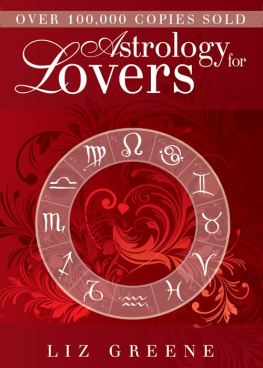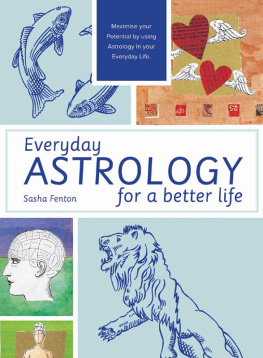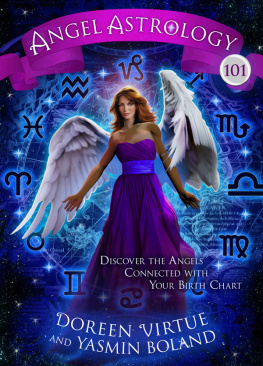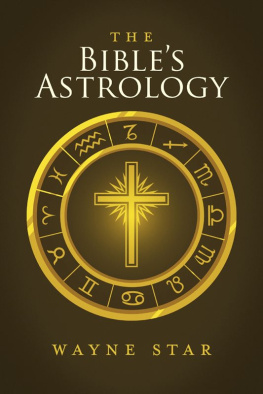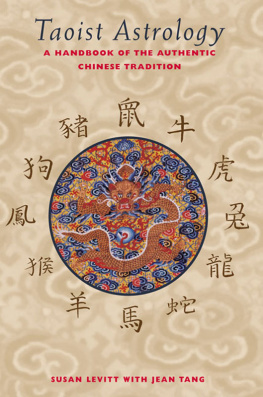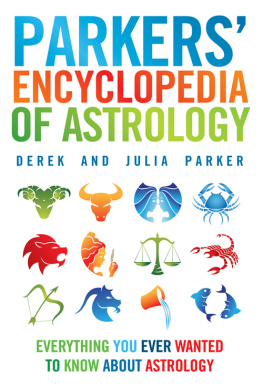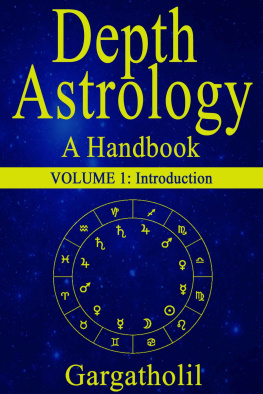Liz Greene - The Development of Personality
Here you can read online Liz Greene - The Development of Personality full text of the book (entire story) in english for free. Download pdf and epub, get meaning, cover and reviews about this ebook. year: 1987, publisher: Weiser Books, genre: Science. Description of the work, (preface) as well as reviews are available. Best literature library LitArk.com created for fans of good reading and offers a wide selection of genres:
Romance novel
Science fiction
Adventure
Detective
Science
History
Home and family
Prose
Art
Politics
Computer
Non-fiction
Religion
Business
Children
Humor
Choose a favorite category and find really read worthwhile books. Enjoy immersion in the world of imagination, feel the emotions of the characters or learn something new for yourself, make an fascinating discovery.

- Book:The Development of Personality
- Author:
- Publisher:Weiser Books
- Genre:
- Year:1987
- Rating:4 / 5
- Favourites:Add to favourites
- Your mark:
- 80
- 1
- 2
- 3
- 4
- 5
The Development of Personality: summary, description and annotation
We offer to read an annotation, description, summary or preface (depends on what the author of the book "The Development of Personality" wrote himself). If you haven't found the necessary information about the book — write in the comments, we will try to find it.
The Development of Personality — read online for free the complete book (whole text) full work
Below is the text of the book, divided by pages. System saving the place of the last page read, allows you to conveniently read the book "The Development of Personality" online for free, without having to search again every time where you left off. Put a bookmark, and you can go to the page where you finished reading at any time.
Font size:
Interval:
Bookmark:

First published in 1987
by Samuel Weiser, Inc.
P. O. Box 612
York Beach, Maine 03910-0612
www.weiserbooks.com
08 07 06 05 04 03 02 Ol 00
13 12 11 10 9 8 7 6 5
Copyright 1987 Liz Greene and Howard Sasportas
All rights reserved. No part of this publication may be reproduced or transmitted in any form or by any means, electronic or mechanical, including photocopying, recording, or by any information storage and retrieval system, without permission in writing from Samuel Weiser, Inc. Reviewers may quote brief passages.
Library of Congress Cataloging-in-Publication Data
Greene, Liz.
Seminars in psychological astrology.
Bbibliography: v. 1, p.
Contents: v. 1. The development of the personality.
1. Astrology and psychology. I. Sasportas, Howard. II. Title.
BF1729.P8G735 1987
133.5'815
86-33977
ISBN 0-87728-673-6 (v. 1)
BJ
Cover illustration copyright 1987 Liz Greene
Typeset in 10 Point Palatino
Printed in the United States of America
The paper used in this publication meets the minimum requirements of the American National Standard for Information SciencesPermanence of Paper for Printed Library Materials Z39.48-1992(R1997).
www.redwheelweiser.com
www.redwheelweiser.com/newsletter
To our students
Part 1
The Stages of Childhood
by Howard Sasportas
Part 2
The Parental Marriage in the Horoscope
by Liz Greene
Part 3
Subpersonalities and Psychological Conflicts
by Howard Sasportas
Part 4
Puer and Senex
by Liz Greene
Life has always seemed to me like a plant that lives on its rhizome. Its true life is invisible, hidden in the rhizome. The part that appears above the ground lasts only a single summer. Then it withers awayan ephemeral apparition.... I have never lost a sense of something that lives and endures underneath the eternal flux. What we see is the blossom, which passes. The rhizome remains.
C. G. Jung
There was a time, not so very long ago, when an astrological consultation was something people sought because they wanted predictions about the futuremoney, love, healthand, if there was any character analysis involved at all, it consisted primarily of the astrological cookbook kind: You are a Gemini and therefore you are clever, versatile and articulate. This listing of static personality traits was either already well known to the client, in which case there was not a great deal of value to be gained from such a reading; or the client could not immediately identify with the character traits described, in which case the validity of astrology itself was consequently held in question.
Naturally there are still many people who go to an astrologer for these reasonspredictions and a pat on the back about one's apparently fixed and unalterable behaviourand there are still many astrologers who will happily oblige such clients by providing the information requested. But over the years, particularly the last five years, there has been a gradual change not only in the reasons why people seek out astrologers, but also in the kind of people who seek them out; and the astrological community has in turn met this challenge and has begun to formulate a different and much more creative kind of astrology, built firmly upon tradition but adapted to the changing and more sophisticated needs of the client. There was a time, not so very long ago, when an astrologer's clientele was fairly predictablea fair number of show business people, notoriously superstitious anyway, and a smattering of upwardly spiritually mobile aspirants hoping for a formula for enlightenment without mess. This, too, has been changing. Now the astrologer's client may be anybody at all, from a government minister to a secretary, from a doctor to an artist, from a computer programmer to a fashion model. Having one's horoscope interpreted is no longer an obscure sort of entertainment or a replacement for making choices in life.
The reasons for this shift lie in part in the increasing interest inand investigation ofserious astrology, which has helped break down the barriers which often spring from the ignorant layman's assumptions about what astrology can and cannot do. But this increasing interest is itself a symptom of something. There may be some quite profound underlying reasons why we, as astrologers, are beginning to be taken more seriously; and why we, as astrologers, are increasingly being challenged to take ourselves more seriously, and more professionally, as well. For one thing, the astrological consultant has, willingly or not, been usurping what was once the role of the priest, the physician, and the psychiatrist. The client is no longer merely a gullible soul seeking fortune-telling, nor an esoterically inclined aspirant wondering what he or she was up to in the last incarnation. The client may be depressed without external cause; anxious or fearful; in the throes of an emotional crisis, or the breakup of a relationship; seeking serious insight into potential vocational opportunities; or troubled by apathy and an inability to make anything of his or her talents. In short, the client may have psychological problems and questions, and may be intelligently seeking insight into these problems in order to have a greater range of choices and responsesa situation which can apply to just about anybody at a certain crossroads in life. And with due respect to those readers who might be members of the clergy or of psychiatry, this client with psychological problems may often fail to find the tolerance or depth of understanding that the clergy might justifiably be expected to provide, receiving meaningless aphorisms instead; or may fail to obtain the insight into symptoms and the openness to discuss them without clinical labelling which the orthodox medical establishment sometimes finds rather difficult to offer. So, willingly or not, consciously or not, the consultant astrologer has arrived as a counsellor. And those astrologers who heatedly deny this psychological aspect of their work are at best naive and at worst destructive through their ignorance of what they are really dealing with. But for the most part, astrology has responded to this new role by accepting the psychological dimension of the study, and whatever term we wish to usepsychological astrology, astrological psychology, or simply good and insightful astrological counsellingastrology is coming of age and taking its place among the helping professions.
There is another thread to this fabric which is being woven out of the marriage of astrology and psychology, and that is the thread of meaning. Meaning is essential for life, and human beings seem to require it. Without meaning, there is often the feeling that we have nothing to live for, nothing to hope for, no reason to struggle for anything and no direction in life. Whether it is ultimately up to us to create our own meaning, or whether it is our task to discover some grand cosmic scheme or divine intention, the search for guidelines, goals, and a sense of purpose is an innate drive in all of us. And the problem of meaning has, in the last few decades, become an urgent one. Disillusionment with traditional religious structures accounts for some of this crisis of meaning which is upon us; and the increasing complexity of our lives in a world beset by new and daunting problems and challenges for which there are no existent guidelines or methods of approach accounts for even more of it. Loss of meaning is often the root from which spring the myriad psychological problems which masquerade as clinical symptoms, and loss of meaning is often the crisis which drives the client to seek an astrologer.
Next pageFont size:
Interval:
Bookmark:
Similar books «The Development of Personality»
Look at similar books to The Development of Personality. We have selected literature similar in name and meaning in the hope of providing readers with more options to find new, interesting, not yet read works.
Discussion, reviews of the book The Development of Personality and just readers' own opinions. Leave your comments, write what you think about the work, its meaning or the main characters. Specify what exactly you liked and what you didn't like, and why you think so.


